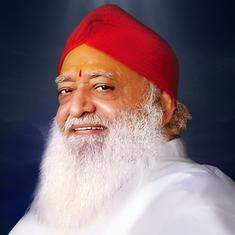Karnataka hijab ban: HC to direct students to not wear ‘religious clothes’ till judgement is passed
Senior Advocate Devadatt Kamat objected to the court’s directions, saying that it amounted to the suspension of the petitioners’ rights.

The Karnataka High Court on Thursday will direct students not to wear “religious clothes” till an order is passed on the matter of whether students should be allowed to cover their heads in hijabs in educational institutions, Live Law reported.
“We will pass an order that lets the [educational] institutions start… But till the matter is pending here, no student should insist on wearing religious dress,” Chief Justice Ritu Raj Awasthi said. “We will restrain everyone from adopting religious practises while we are hearing...”
The interim order is expected soon.
Senior Advocate Devadatt Kamat objected to the court’s directions, saying that it amounted to the suspension of the petitioners’ rights. “We are told to choose between food and water and both are essential,” he argued.
However, the court posted the matter for next hearing at 2.30 pm on Monday.
A three-judge bench headed by Awasthi was hearing a plea filed by a group of women students seeking permission to wear hijabs in educational institutions. On Wednesday, a single-judge bench of Krishna Dixit had referred the matter to a larger bench, while refusing to pass an interim order.
Students of the Government Women’s Pre-University College in Kundapura town of Udupi district started a protest last month after they were not allowed to attend classes for being dressed in hijab. On February 5, the Karnataka government passed an order banning clothes that “disturb equality, integrity and public order”, following which the students moved the court.
At Thursday’s hearing, senior advocate Sanjay Hegde, appearing for the petitioners argued that there is no specific provision in the Karnataka Education Act that deals with uniforms in educational institutions. While there are uniform-related rules for school goers, they do not apply to pre-university students, Hegde argued.
“There is no prescribed penalty for violation [of uniform rules],” he submitted to the court. “Even if some penalty has to be imposed Your Lordships should examine whether keeping children away from classes is a proportionate penalty.”
He also contended that the matter involved a question of women’s identity and dignity.
“We had Dr [BR] Ambedkar...When he went to school, [he] was made to sit apart,” Hegde said. “After so many years of the Republic, I do not want any kind of separation.”
Hegde sought an interim verdict from the court to allow the women to attend classes while wearing hijabs. He urged the court to adjudicate on the “smaller question” of allowing hijabs.
To this, the chief justice said that the court prima facie believed that the matter was already beyond the stage involving the “smaller question”.
“The single judge has already said the matter involves important constitutional issues,” the chief justice said.
Meanwhile, Karnataka Advocate General Prabhuling K Navadagi argued that the state government has allowed all educational institutions to decide on their uniforms. He said that while the government wanted schools and colleges to reopen in the state, it was not possible due to the protests at educational institutions.
Over the past few days, Hindu students and mobs of men have protested against women wearing hijabs to college at several places in Karnataka. On Tuesday, the Karnataka government ordered all high schools and colleges in the state to shut between February 9 and February 11.
“We cannot start with one set of students coming with head scarfs and another set coming with saffron shawls,” the advocate general said, at Thursday’s hearing.
Senior Advocate Kamat, also appearing for the petitioners, pointed out that the matter was not related to uniforms, as the students were wearing them.
“They only wanted to wear the headscarf of the same colour,” Kamat told the court. “...This is not a harmful practice. These are innocuous practice[s].”
Meanwhile, earlier during the hearing, the chief justice directed media organisations not to report on observations made by the judges during arguments without looking at the final order in the case.
“In social media, newspapers or anywhere else, please don’t report unless you go through the order. If some observations from here and there are reported, it will create a different impression,” the chief justice said.









